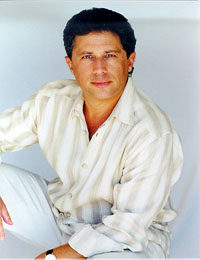 This statement is usually spoken within minutes by almost everyone who calls me. I can hear it in their voice. The words gather momentum as they speak and sentences soon collide with each other. Their breathing is more like panting, as though they had just run up and down a long flight of stairs.
This statement is usually spoken within minutes by almost everyone who calls me. I can hear it in their voice. The words gather momentum as they speak and sentences soon collide with each other. Their breathing is more like panting, as though they had just run up and down a long flight of stairs.
My body becomes tense in empathy. I have to breathe this out. I try to stay with them without going under.
Do you know what I'm talking about?
Let's agree that we have all experienced anxiety, and let's also agree that it has never done anyone any good, ever. It's useless. When we have it, we don't want it.
It's like tag: you're it until you get rid of it. In tag, you get rid of it by dumping it on someone else. Anxiety is different. We don't get rid of it, we see it, and that seeing causes anxiety to leave of its own accord.
When people say they are anxious, they are quite correct. They have become anxiety, and everything they think, say, and do will be anxious. We might be able to so arrange our thoughts and our circumstances to briefly not experience anxiety, but this is not different than an asthmatic taking deep draughts from an inhalator. The symptoms are temporarily gone, but the asthma is still there, hiding in some interior smoke and card shop.
To be free from anxiety requires that we see it, not just understand it. To understand anxiety is to have our friend say, "Oh, don't worry, that's not going to happen." When we have become anxiety, our friend's advice is ridiculous. We are certain that what they say won't happen, will. The the basis of our anxiety is the certainty-unfounded-that something is going to happen, and it is going to be bad for us.
Anxiety is our internal interpretive response to a situation, real or imagined, which leads us to believe that something bad is going to happen. We might be four days away from our rent being due, without any money. Anxiety responds like this: We won't get any money. We will be homeless. We will lose all our friends. We will die next Wednesday.
A circus tent could be going up ten feet from us and we wouldn't see it. We would see, instead, the anxiety-induced hallucinations unfolding in our mind. This is all we would see.
Anxiety isn't real. It is imaginary. This is what we must see. We can't just understand it. We can't just have our friend say, "Hey, your anxiety is just imaginary."
We have to be able to see that our response has nothing to do with anything. It exists purely within our own imagination: part fear, part insecurity, and part past decisions about how life is.
May everyone be at peace, in love, and know their most perfect Self.
"Echoes in Silence" is a bi-weekly column by Robert Rabbin--author, speaker, and advisor--who has spend thirty years using self-inquiry as a means to explore the true nature of self, mind, reality, and consciousness.
His new book, The Sacred Hub (The Crossing Press, ISBN: 0-89594-837-0), is available through the bookstores nationwide.